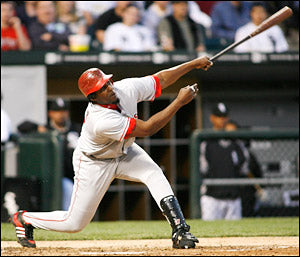Skill acquisition is at the heart of youth sports, and the philosophy of "you learn by doing" plays a pivotal role in this dynamic. The best way for youth athletes to learn and improve their game is not merely by listening to instructions or performing isolated drills. Instead, it is by actively playing the game or engaging in chunks of the game.
The Science Behind "You Learn by Doing"
The "whole-part-whole" learning approach is an educational model that has been adopted in sports coaching. It involves introducing the game in its entirety, breaking it down into smaller parts for focused skill development, and then reintegrating these skills back into the full game context. This model aligns with the "you learn by doing" philosophy, offering a practical and immersive learning experience.
Scientific research supports the effectiveness of game-based learning. One of the foundational theories in this regard is Richard A. Schmidt's "Schema Theory" (1975). Schmidt argued that motor skills are learned through creating mental representations or schemas of actions. These schemas are not fixed but are adaptable and refined through varied practice. When youth athletes play the game or parts of it, they have the opportunity to develop and continually adjust these schemas, which enhances their performance.
Another important contribution to understanding motor skill development is David L. Gallahue's "Dynamic Systems Theory" (1982). Gallahue stressed the importance of understanding movement as a complex system that is influenced by the learner's environment, the task at hand, and the learner's capabilities. Game-based learning perfectly aligns with this theory, as it allows athletes to develop their motor skills in a dynamic, ever-changing environment.
More recently, Jean Côté, Jennifer Turnnidge, and Kristoffer Henriksen's work on "Deliberate Play and Practice in Youth Sport" (2021) emphasizes the importance of a balance between deliberate play (unstructured, enjoyable activity) and deliberate practice (task-focused, goal-directed activity) in youth sport. Game-based learning incorporates elements of both. It provides the enjoyment and varied challenges of play, while also fostering the focus and specific skill development found in practice.
Benefits of Game-Based Learning
Playing the game or parts of the game has multiple benefits for youth athletes. Firstly, it enhances their decision-making and problem-solving skills. The unpredictable nature of sports games requires players to assess situations and make swift decisions. This active engagement helps young athletes become more adept at reading the game and making effective decisions.
Secondly, game-based learning aids in developing teamwork and communication abilities. Most sports are team-based, and success often hinges on players' ability to work well together. By playing the game, kids learn to coordinate with their teammates, communicate effectively, and understand the value of collective effort.
Moreover, exposure to various game scenarios helps young athletes build a mental library of game situations and potential solutions. Over time, this library enables them to adapt their skills to different challenges and opponents, fostering adaptability and resilience.
The Role of Coaches in Facilitating Game-Based Learning
Coaches play a crucial role in facilitating game-based learning. They should design practice sessions that mimic real game situations, allowing players to apply their skills within a relevant context. While drills focused on specific skills can be valuable, they should not dominate training sessions. Instead, coaches should balance drills with game-based learning experiences.
Another important aspect is fostering a growth mindset. Coaches should encourage players to view mistakes as learning opportunities rather than failures. This perspective promotes a more positive learning environment, where players feel comfortable taking risks and exploring different strategies.
Creating a Positive Youth Sports Culture
Creating a culture that supports game-based learning is paramount. Sports organizations should prioritize this approach in their coaching methodologies and philosophies. This emphasis not only supports skill acquisition but also creates a positive environment where young athletes feel motivated to participate and learn.
Supporting young athletes to take risks and develop at their own pace is another crucial aspect of a healthy sports culture. Every child is unique in their development, and the "you learn by doing" philosophy accommodates this diversity. It allows each athlete to explore, experiment, and learn from their own experiences in the game.
An inclusive and nurturing environment is also essential for all players. Youth sports should be a safe space for kids to express themselves, make mistakes, and grow. A culture that encourages learning through doing and values effort over perfection fosters a sense of belonging and enjoyment for all participants.
Conclusion
The "you learn by doing" concept is a powerful tool for enhancing skill acquisition in youth sports. It acknowledges the importance of experiential learning and leverages it to help young athletes better understand and improve their game.
Parents, coaches, and sports organizations are encouraged to embrace game-based learning. By shifting the focus from isolated drills to playing the game, we can create a more engaging, effective, and enjoyable skill acquisition experience for young athletes. Ultimately, this approach nurtures well-rounded athletes who not only excel in their sport but also develop essential life skills like problem-solving, teamwork, and resilience.








